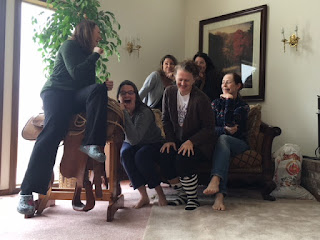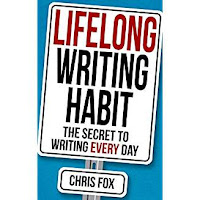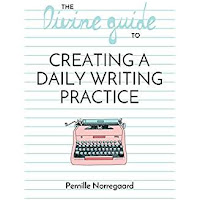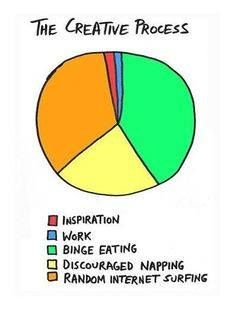By Cathy Perkins
We’ve been
chatting about fitness at The Stiletto Gang this month, which inevitably has
led to discussions about discipline. Or the lack of it. On my other group blog,
several people have debated whether they’ve lost their creative spark and burnt
out, or if they’ve simply lost their
discipline. Oh vey, my friend Toby
says. Discipline…
When I admired
what another friend had accomplished—her discipline in sticking to her schedule—she
bluntly upended that notion.
“It’s not that I’m disciplined, it’s that
I’m committed to having the result.”
You don’t
need discipline when you’re committed to the outcome, because the result tells
you what choices you need to make. If you want X, then you do A, B and C.
Period. End of sentence.
I mulled that
concept over for a few days, wondering if it was a yet another platitude or a
different—better—way to look at the question. The song, How Bad Do You Want It? kept cycling through my head. If you’re
committed to a goal—be it losing that ten pounds or finishing your first,
second or tenth novel, or eating the broccoli you finally remembered to
buy—then taking the actions to make it happen follow logically and naturally.
The next set
of questions churning in my head weren’t as nice. Basically, I had to rethink everything
I thought I was committed to. It made me question the goals I’m willing to do
the work for.
None of these
things make for sound sleep at 3AM by the way.
Who wants to admit—even
to themselves—that maybe they’re not as committed as they thought they were?
Then again,
maybe it’s a chance to reassess what you really want and break it down into the
little pieces and determine what you really care about and what you can die without
having accomplished and not be the least bit bothered by it.
If you want
to write your novel (or lose that blasted ten pounds), are you committed enough
to that result, that goal, that you’re doing the work day in and day out? The
harsh truth is, if you’re not, maybe you’re not as committed to that result as
you thought you were.
And that’s
what I’m wrestling with right now.
To have what
you want, you have to be committed.
If you’ve got
goals or dreams in your head that really truly aren’t your goals—maybe it’s something you think you ought to want, or you’ve been told you should want, but you don’t really care about it, or if you didn’t
make it happen you wouldn’t lose sleep, then give yourself permission to drop those
“goals”. Don’t waste time and energy or even think about them.
Instead, refocus
on what you do want to pursue.
That’s what
alignment—commitment—is about. It’s about knowing what you want deep down.
Knowing and being willing to let go of the other stuff.
My friend continued: You’re going to lose your
focus sometimes. You’re going to fall off the wagon and be unproductive. It
happens to all of us. Checking in with yourself on a daily basis is a great way
to stay aligned with what you want and where you’re going, and also to
pick yourself back up faster when you do lose focus.
So stop
forcing yourself into dreams and goals that have other people’s names on them.
If you know you
truly want something and wouldn’t be able to live with yourself if you didn’t
get it, maybe it’s time to focus and define that goal and then commit to it. No
discipline needed.
Challenge for
the week, the month, however long it takes: Dig deep and really question your
goals and dreams. If you’ve been after something for a while and you’re still
coming up short, maybe deep-down you don’t want to do it and it’s time to let
that goal go. Or, maybe you’ll find you want it more than anything and now it’s
time to step up your commitment to the result.
What’s
one result you’re so committed to you don’t need “discipline” to take
action?
_________________________________________________________________________________
Cathy Perkins is questioning her commitment to releasing a new novella next month, Malbec Mayhem, a spinoff related to So About the Money. She has lists–lots of lists–and may survive the day to day activities needed to make it happen.
 An award-winning author of financial mysteries, Cathy Perkins writes twisting dark suspense and light amateur sleuth stories. When not writing, she battles with the beavers over the pond height or heads out on another travel adventure. She lives in Washington with her husband, children, several dogs and the resident deer herd.
An award-winning author of financial mysteries, Cathy Perkins writes twisting dark suspense and light amateur sleuth stories. When not writing, she battles with the beavers over the pond height or heads out on another travel adventure. She lives in Washington with her husband, children, several dogs and the resident deer herd. 







